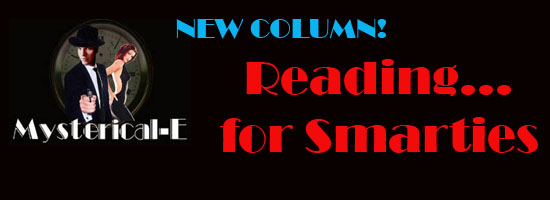 |
THE READING PROCESS
By Jan Christensen
"Some books are to be tasted, others to be swallowed, and some few to be chewed and digested: that is, some books are to be read only in parts, others to be read, but not curiously, and some few to be read wholly, and with diligence and attention." - Sir Frances Bacon I imagine most people are like I am. We never pay much attention to all the knowledge that's been accumulated about the process of reading. Because I now write a quarterly column about reading, I have to find individual topics. When I Googled simply the word, "reading," the search engine came up with thousands of hits. No surprise there. The surprise for me was all there is to know about process. And literacy. The basic literacy standard in many places is the ability to read the newspaper. But increasingly, communication requires the ability to use computers and other digital technologies and all their variations (cell phones, digital PDAs, MP3 players, and so on). Some experts now say that to be literate, a person needs to know how to use word processing programs, web browsers, and do email, with the basic skill of reading with comprehension understood. Different names have been suggested: multimedia literacy, information literacy, and computer literacy, for example. Centuries ago, people rarely read silently--they read out loud. When someone did see another person reading silently, it was remarked upon because it was so rare. Studies have shown that fast readers don't read every word even silently. The reason for that is interesting, and it also applies to listening. There are "linguistic regularities" which occur across all languages. Reading is a process in the brain used to decode symbols (letters, usually) in order to understand their meaning. It should become automatic enough to free attention to analyze the meaning of what is being read. By knowing subconsciously what the linguistic regularities are, reading becomes easier and faster. Reading with comprehension is helped by the reader's experiences and prior knowledge. The reading process requires continuous practice, development, and refinement. But it is probably impossible for the reader to see exactly in his mind what the writer envisioned in hers. Writer writing "dog" may see one breed, while reader sees another. Usually it doesn't matter, but of course, sometimes it matters a great deal. There are three steps to the reading process, and if thought about as you go, may increase your enjoyment. I am going to use a book as the entity to talk about reading:
People who study and teach reading consider comprehension and reading to be synonymous because when understanding breaks down, reading actually hasn't happened. Perhaps more than any other, the word "meaning" appears in definitions of reading. Readers actually construct meaning from text. The cognitive factors that influence reading are: reader interest, motivation, and schema. Schema is your idiosyncratic, organized aggregative knowledge or experience, often partnered with the feelings or emotions associated with the experience at the time the information was stored in the brain. Comprehension can be impaired when we have little experience or information about the subject we are now reading about. So, how much the reader already knows about a subject helps determine the ease or difficulty in comprehending the material. This is true for not only reading and writing, but for all kinds of communication. By assimilation we fit new information into existing schemata. The richer the schemata, the more the reader can fill in gaps by reading between the lines, supplying missing information, interpreting, and making inferences. As new information is assimilated, the schemata grow richer. Another idea related to the development of reading speed and comprehension is that of metacognition or metacognitive awareness or fluency. Metacognition is knowing about knowing and thinking about thinking--knowing what we know and what we don't know. Strategies for metacognitive reading are:
Fluent readers often think about their reading (comprehension and processing) while reading so they can improve both speed and comprehension. The more one reads the better one gets. Fluency or metacognition allows each person to have more time to digest the information and focus on meaning, so these readers understand more complex and difficult texts quicker. Bottom line? To get more out of reading, read more. Work on your schema. The more you know when you begin reading, the more you get out of reading. Become computer literate (if you're not already) because it will increase your reading ability in the long run. A day without reading is a day without sunshine. Currently reading: "Hardly Knew Her," a collection of short stories by Laura Lippman. Highly Recommended |
|
|
Past issues and stories
pre 2005.
Subscribe to our mailing
list for announcements.
Submit your work.
Advertise with us.
Contact us.
Forums, blogs, fan clubs,
and more.
About Mysterical-E.
Listen online or download
to go.
|
|
|
 |
 |

